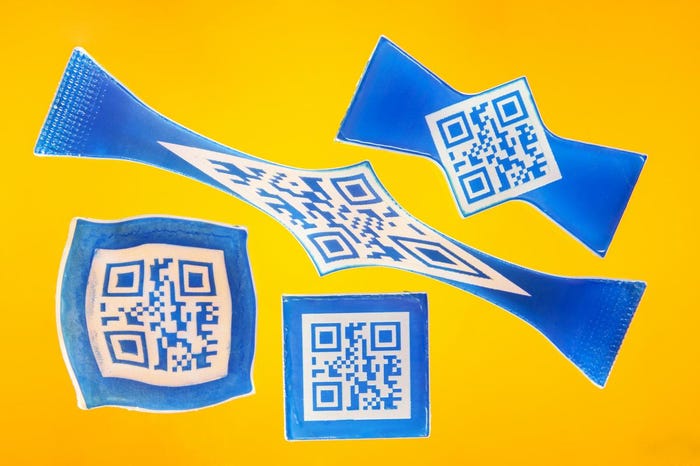TPU with a memory opens up new application areas
A new shape memory polymer based on a thermoplastic polyurethane (TPU) has been released with the ability to "remember" its original shape when heated to a certain temperature.
May 23, 2012
A new shape memory polymer based on a thermoplastic polyurethane (TPU) has been released with the ability to "remember" its original shape when heated to a certain temperature. Developed by Bayer MaterialScience and the BAM Federal Institute for Materials Research and Testing, Desmopan DP 2795A SMP has a switching temperature of approximately 40°C, with proposed applications including remote temperature sensors, artificial muscles, hinges, self-loosening screws, packaging, and shrink tubing.
Bayer Desmopan DP 2795A SMP
Bayer and BAM recently submitted a patent application for a possible application in what they call "functional film tunnels and self-erecting structures." The concept being that film tunnels in a field act like greenhouses and accelerate the growth of vegetables so they can be harvested sooner than is possible if they were grown under the open sky. The companies point out that while it is easy to lay flat films on a field, erecting a permanent tunnel with films can be a time-consuming and costly operation.
In practice, profiles made of the new TPU are fastened to a transparent film while flat. After the film has been laid on the bed, the profiles are heated to the switching temperature and "remember" their bent, permanent shape and pop up to form a half-tunnel, lifting the films with them. "The mini-greenhouses are then ready for use," Bayer stated in a release.
Another potential market: product and brand protection applications. BAM has used the TPU for labels that engraved and colored quick response (QR) codes, so that the codes can only be read if the labels are in their permanent shape. Thorsten Pretsch, head of the BAM department for the investigation of shape memory polymers, said in this instance, the labels are well suited as a means of storing information to mark and identify products in a way that is very difficult to counterfeit.
The developers also point out that since the TPU is free from plasticizers and antihydrolysis agents, it is also suitable for food-contact applications, while maintaining all the typical advantages of TPU, including high abrasion resistance, flexibility, and good chemical resistance.
Existing shape-memory polymers include Composite Technology Development Inc.'s (CTD) Tembo family of thermoset (epoxy) shape-memory polymers and CRG's Veriflex epoxy and composite shape memory polymers.
About the Author(s)
You May Also Like


